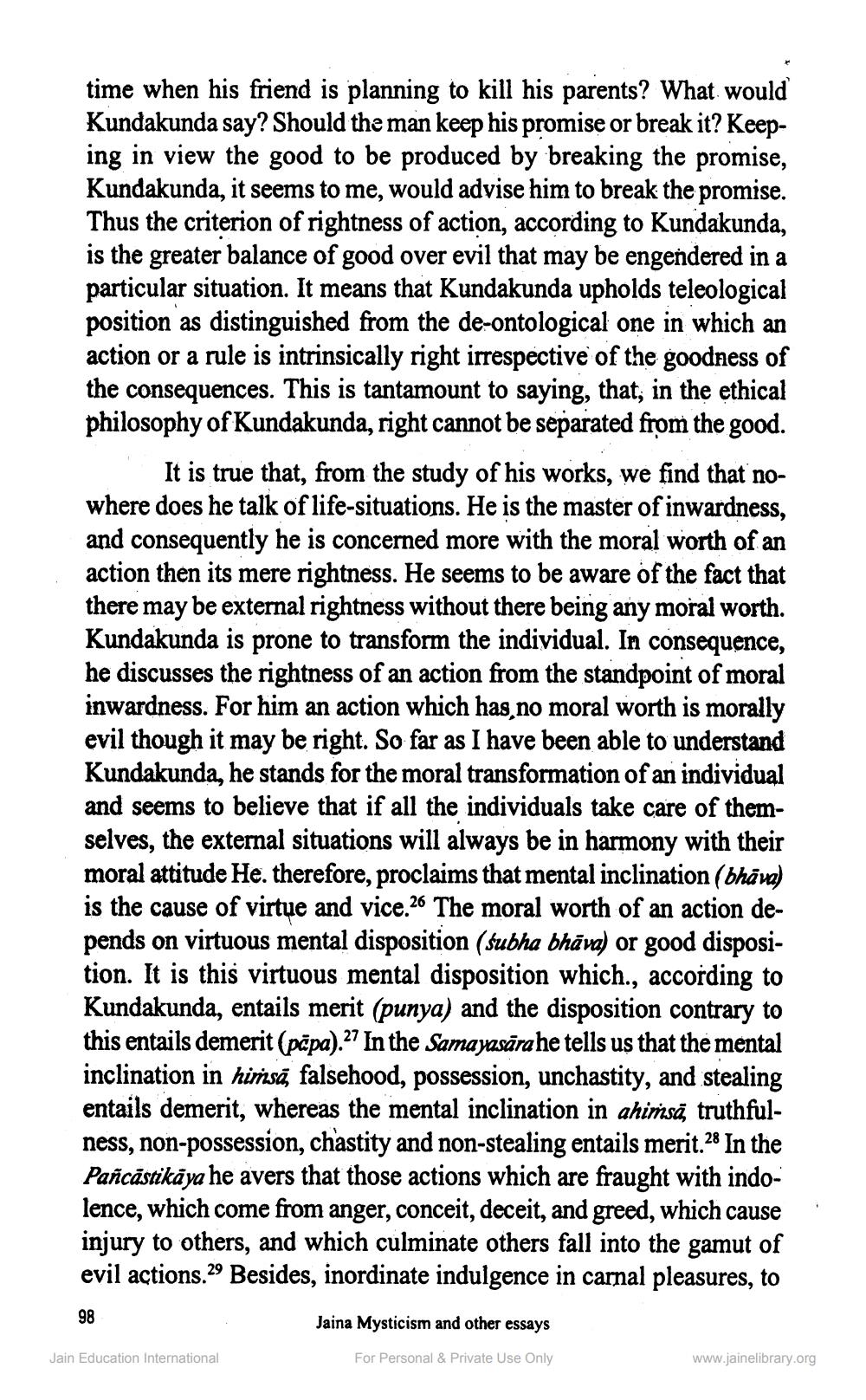________________
time when his friend is planning to kill his parents? What would Kundakunda say? Should the man keep his promise or break it? Keeping in view the good to be produced by breaking the promise, Kundakunda, it seems to me, would advise him to break the promise. Thus the criterion of rightness of action, according to Kundakunda, is the greater balance of good over evil that may be engendered in a particular situation. It means that Kundakunda upholds teleological position as distinguished from the de-ontological one in which an action or a rule is intrinsically right irrespective of the goodness of the consequences. This is tantamount to saying, that, in the ethical philosophy of Kundakunda, right cannot be separated from the good.
It is true that, from the study of his works, we find that nowhere does he talk of life-situations. He is the master of inwardness, and consequently he is concerned more with the moral worth of an action then its mere rightness. He seems to be aware of the fact that there may be external rightness without there being any moral worth. Kundakunda is prone to transform the individual. In consequence, he discusses the rightness of an action from the standpoint of moral inwardness. For him an action which has no moral worth is morally evil though it may be right. So far as I have been able to understand Kundakunda, he stands for the moral transformation of an individual and seems to believe that if all the individuals take care of themselves, the external situations will always be in harmony with their moral attitude He. therefore, proclaims that mental inclination (bhava) is the cause of virtue and vice. 26 The moral worth of an action depends on virtuous mental disposition (subha bhāva) or good disposition. It is this virtuous mental disposition which., according to Kundakunda, entails merit (punya) and the disposition contrary to this entails demerit (pēpa). 27 In the Samayasārahe tells us that the mental inclination in himsā, falsehood, possession, unchastity, and stealing entails demerit, whereas the mental inclination in ahimsă, truthfulness, non-possession, chastity and non-stealing entails merit.28 In the Pañcāstikaya he avers that those actions which are fraught with indolence, which come from anger, conceit, deceit, and greed, which cause injury to others, and which culminate others fall into the gamut of evil actions.29 Besides, inordinate indulgence in carnal pleasures, to
98
Jaina Mysticism and other essays
Jain Education International
For Personal & Private Use Only
www.jainelibrary.org




